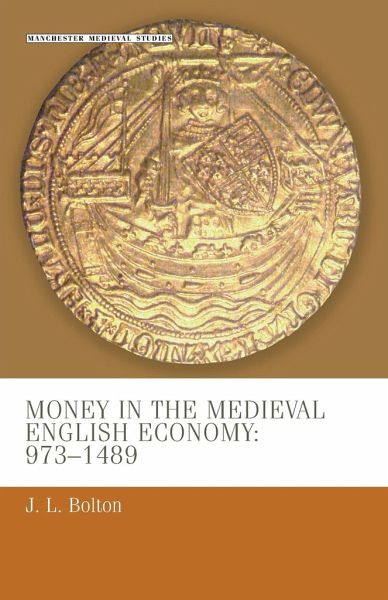
Money in the medieval English economy 973-1489
Versandkostenfrei!
Versandfertig in 1-2 Wochen
30,99 €
inkl. MwSt.

PAYBACK Punkte
15 °P sammeln!
The importance of money as one of the key variables in the workings of the medieval economy is often overlooked. This new study first provides the reader with a background to the problems of modelling the medieval economy and the value of the Fisher equation of exchange to monetary historians, to the pratical processes of strking coins from silver and gold acquired through foreign trade and to the importance of royal control over mints and exchanges. These theories are then used to analyse how money worked within the economy if the early, central and late middle ages with fluctuations in the s...
The importance of money as one of the key variables in the workings of the medieval economy is often overlooked. This new study first provides the reader with a background to the problems of modelling the medieval economy and the value of the Fisher equation of exchange to monetary historians, to the pratical processes of strking coins from silver and gold acquired through foreign trade and to the importance of royal control over mints and exchanges. These theories are then used to analyse how money worked within the economy if the early, central and late middle ages with fluctuations in the size of the circulating medium and the availability of credit acting as either a brake on or a stimulus to economic expansion. A full money economy did not emerge until c. 1300 but its existence and flexibility helped the economy survive the severe shocks of the late middle ages.




